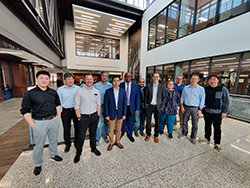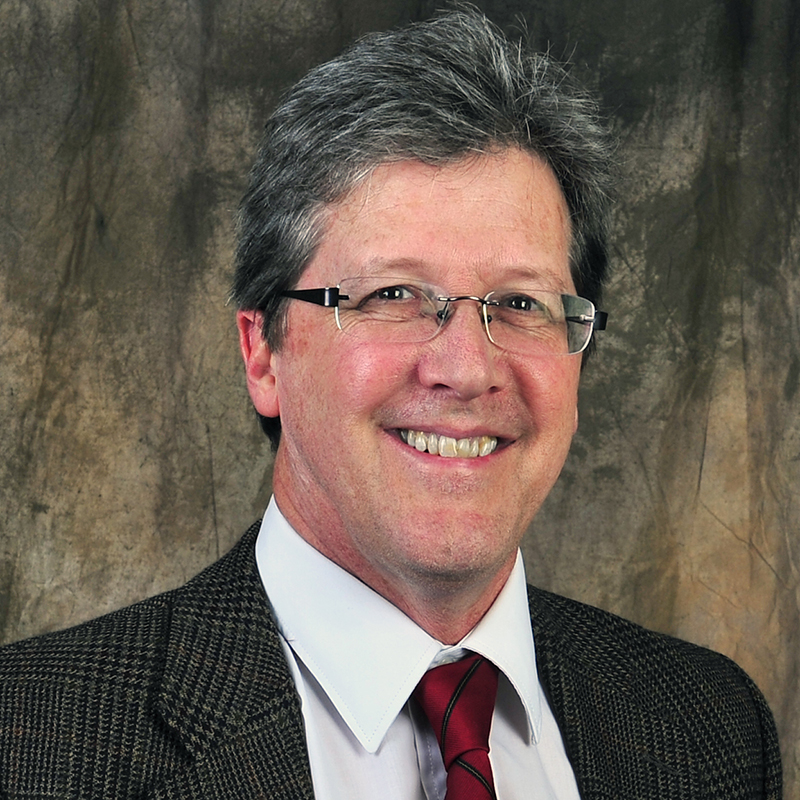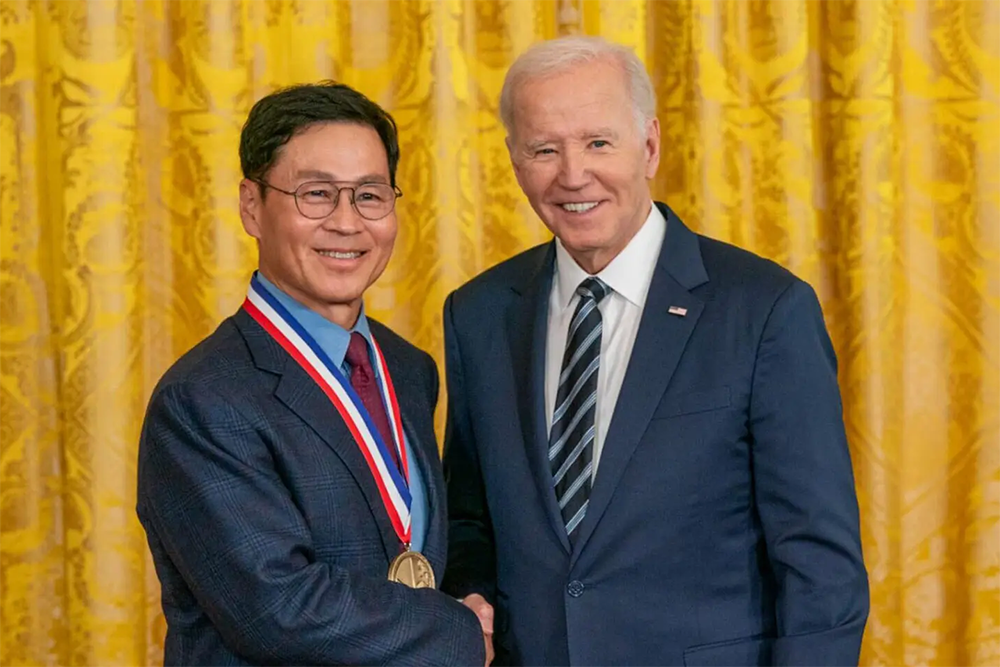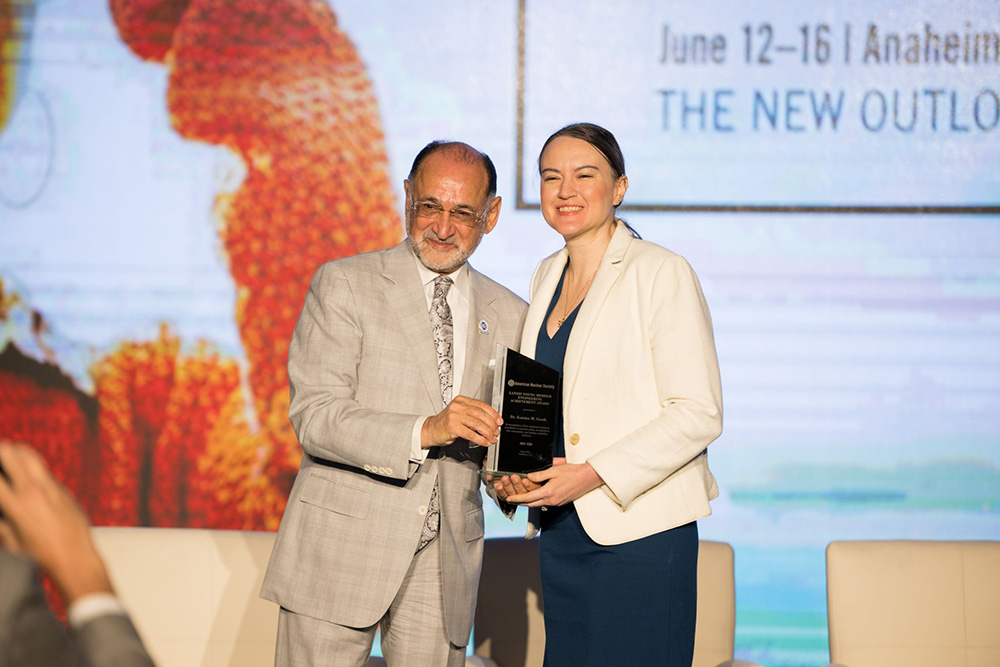News Story
Graham Delivers Hawkins Memorial Lecture
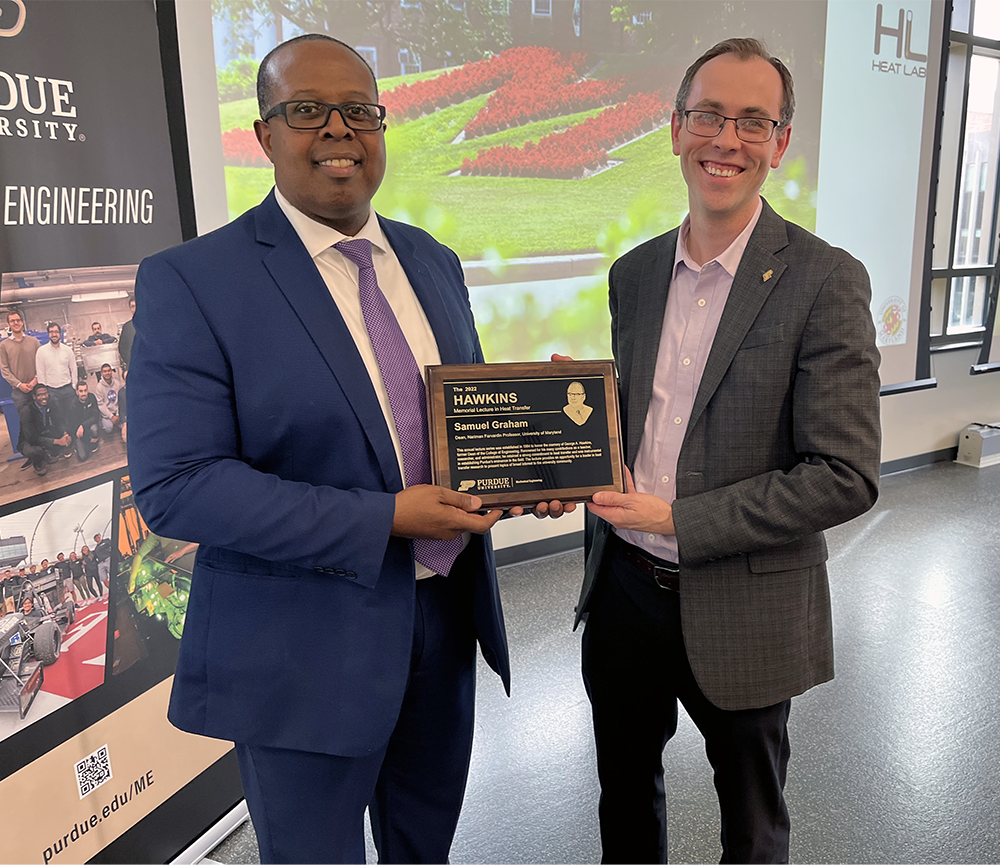
Maryland Engineering's Dean Samuel Graham, Jr. (left) and Justin A. Weibel, associate professor of mechanical engineering, Purdue University, pose with a plaque commemoratint the 2022 Hawkins Memorial Lecture.
Maryland Engineering’s Dean Samuel Graham, Jr. delivered the Hawkins Memorial Lecture at Purdue University on Thursday (October 6), speaking on the topic “From Materials to Manufacturing: Strategies to Enable the Thermal Management of Wide Bandgap Electronics.” The event was followed by a second lecture to heat transfer faculty and students on Oct. 7.
The lecture series, established in 1984, honors George A. Hawkins, former Dean of Purdue’s Schools of Engineering, who was instrumental in establishing the university’s strong legacy in the field of heat transfer. The annual lecture provides the opportunity for a leader in the field to present a topic of current research and discuss the field's future. Dean Graham joins a distinguished list of former honorees from this lecture series, including researchers from academia, industry, and government.
Graham detailed a range of materials and device architectures that are being developed to enable efficient heat dissipation from both gallium nitride (GaN) and gallium oxide (Ga2O3) devices. Both materials are examples of wide bandgap (WBG) semiconductors, which allow for operation at significantly higher voltages, frequencies, and temperatures than is the case with conventional semiconductors, such as silicon. Applications of WBG electronics include visible and UV LEDs and laser diodes, 5G communications, radar systems, and inverters and converters for electrical power systems.
Many experts believe WBG semiconductors could drive the next generation of RF and power electronic devices, and the U.S. Department of Energy has identified them as foundational to new electrical grid technologies. But critical questions remain, including what kinds of architectures can best ensure efficient thermal management, and how stresses should be controlled to prevent device failure.
Graham’s lecture focused on these questions. In addition to identifying materials and architectures, he provided an overview of thermal and stress metrology methods that he and his collaborators have developed to enable the measurement of temperature and stresses in the devices under both steady state and transient operation.
Finally, he detailed an actively cooled power substrate that is being developed for packaging power devices.
Graham became Dean of UMD’s A. James Clark School of Engineering in October 2021, having previously served as chair of the Woodruff School of Mechanical Engineering at the Georgia Institute of Technology. He holds a joint appointment with the National Renewable Energy Laboratory and serves on the Emerging Technologies Technical Advisory Committee for the U.S. Department of Commerce, as well as on the Engineering Science Research Foundation of Sandia National Laboratories.
Earlier this year, the American Society of Mechanical Engineering (ASME) awarded Graham the 2022 ASME Allan Kraus Thermal Management Medal in recognition of his expertise in the thermal engineering of wide bandgap semiconductor devices and interfaces.
Published October 11, 2022
